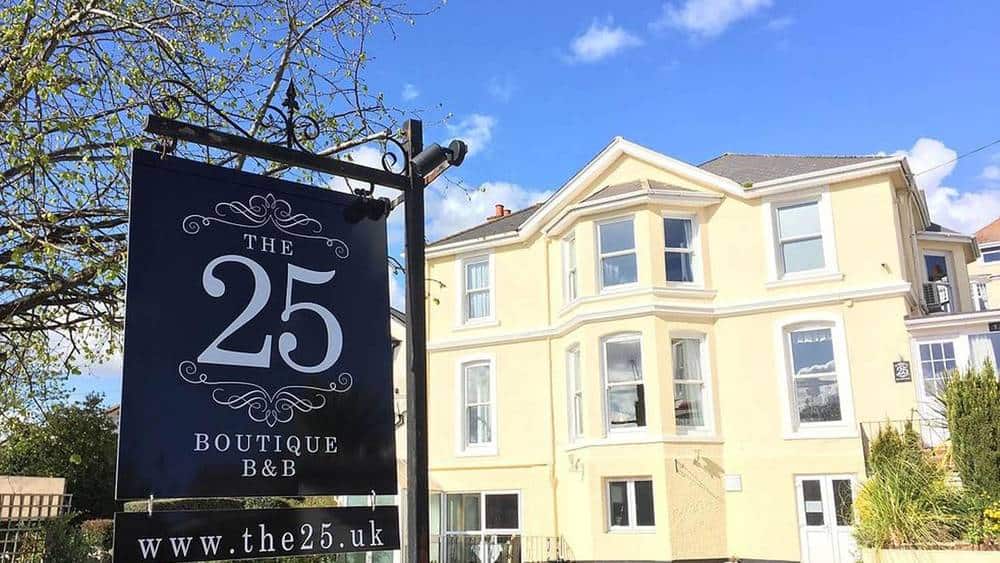
How does the B&B market change across the UK?
We asked three agents from leisure property specialists Fleurets to analyse the B&B market in their area.
Lesley Watmough (LW) – North West & North Wales
Nick Earee (NE) – South East
Andy Frisby (AF) – London
- Describe a typical B&B operation in your area.
LW: A typical B&B operation in my area (the North West and North Wales) is generally between 6 and 14 bedrooms, often run by a couple who are owner/occupiers.
NE: In a similar vein to the North West, a typical operation in the South East will also have between 6 and 12 rooms, however I would add that I tend to find that these business are also family homes.
AF: My focus is on Central London, with areas such as Paddington, Kings Cross and Earls Court traditionally being where the majority of B&Bs are operated. They are often converted mid terrace Victorian or Georgian townhouses with anywhere between 10 to 25 rooms.
- In your area, how has the market changed in the past 10 years?
LW: In the North West, I would say the market has only changed slightly, in that there is more demand as buyers have greater confidence in the B&B market, which is probably a result of more people treating themselves to extra short breaks in addition to their big annual holiday abroad.
NE: There is certainly much more demand for bed & breakfasts in the South East than there was 10 years ago. With the increasing pressures of work and commuting, we find that often the catalyst is a desire to escape the rat race and run a lifestyle business.
AF: The London market is quite segmented. There are the family owned independent B&Bs that have been around for a couple of generations and have not changed too much, other than re-decoration. However, in recent years there has been a migration of some operations to, what could be classed as, premium economy or boutique style B&Bs. These provide an alternative and more unique offer, but often charge higher room rates. Increased residential property values resulted in the loss of a number of B&Bs, however, this has dropped off slightly as the hotel market continues to grow in strength, whilst the residential sector weakens.
- What background are your buyers from?
NE: A wide spectrum of people, for example, I remember selling a very smart B&B on the Isle of Wight to a lorry driver who worked for Tesco in Yorkshire.
LW: Similarly to Nick and the South East, recent buyers have come from various backgrounds including teaching, industry and existing operators.
AF: In London there is a strong demand from foreign investors as well as existing B&B operators seeking additional units. Weak Sterling combined with a relatively stable economy and transparent legal system offers a safe haven for foreign money by comparison to uncertainty abroad. The consensus is very much that, if the market goes wrong in London, it is very likely to have gone horribly wrong elsewhere.
- What ideas are you seeing to generate alternative income?
LW: Most of my clients who operate a B&B have chosen not to have an alcohol licence as well as not to offer evening meals. In this respect most of my clients and buyers are attracted by the freedom and lifestyle offered, and focus on pure B&B trade by increasing occupancy. A number of recent purchasers are also looking at upgrading properties to a more boutique style having fewer customers but charging a higher room rate, making the business more profitable.
AF: I agree with Lesley, in that few B&Bs have alcohol licences and we are seeing more breakfast rooms and similar spaces converted to bedrooms. Many guests are happy to explore local coffee shops and restaurants in the capital, and often opt out of breakfast at the point of booking. Although not a source of alternative incomes, B&B operators are keen to drive bookings through their own websites, thus saving paying costly fees to online travel agents.
NE: Many owners now have guest loyalty schemes, reciprocal arrangements with local businesses and are members of local associations. Savvy social media users are utilising various channels to attract guests to their niche offerings.
- What is the most active town or city within your area?
NE: Brighton. In 2016 the city attracted 7.5 million day visitors and nearly 5 million were from overseas. Brighton is the most popular seaside UK destination for overseas visitors.
LW: Similarly, I am finding the seaside location of Llandudno in North Wales is one of the more popular spots, and have recently completed 2 sales of small 6 bedroom B&B businesses.
AF: Paddington remains the main destination for tourists staying in B&Bs in London; however over the last few years Kings Cross has improved immensely. In the last year or so, we have seen an increase in demand for properties near Old Street, Hackney and Hoxton, seeking to service the growing technology companies in the area.
- Is bank funding available to acquire a B&B business?
NE: Yes, certainly funding is available but it is imperative that the prospective purchaser speaks to an experienced broker or bank that understands the leisure industry.
LW: Yes, bank funding is available depending on the building, the accounts and the purchaser. A number of recent completions have included part-bank loan.
AF: In my experience banks remain keen to fund hotels. As Lesley mentions above, banks do require trading information. I strongly recommend potential buyers speak to their banks about how to fund deals, and we are more than happy to put you in contact with a relationship manager specialising in the leisure sector.
- What challenges does the B&B market face in next 12 months and how can these be mitigated?
LW: The expansion of the national budget operators is a continued challenge for the boutique sector. However, most B&B operators I meet or act for do not necessarily see this as a challenge because they are offering something more homely and personal and tend to find they get a lot of repeat business.
AF: There are a number of ongoing challenges for the London B&B market which is hugely reliant on tourism. Concerns exist about the effect of the recent terrorist attacks in London reducing visitor numbers. Guests are increasingly price sensitive and will compare prices through OTAs to obtain the best deal. Airbnb has had and continues to have an effect on demand. There are almost 7,500 new rooms in the pipeline planned for London in the budget room sector, so competition is likely to increase.
NE: Online travel agents such as booking.com or lastminute.com etc. are dominating the market. However, these also incur costly fees for the operators. I would implore B&B owners to really consider their marketing strategy to reach new clients as well as aim to build repeat custom, therefore avoiding the need to advertise their services with OTAs.
- Are your clients positive about the trade in the next couple of years?
AF: Visitor numbers remain strong in London, which is reflected in the occupancy rates. London’s tourism has also been strengthened by the weak pound. Expectations are that this is set to continue and operators remain keen to acquire more sites.
NE: Yes, our clients are certainly positive about the future and are seeing more and more people staying in the country for short breaks and holidays.
LW: Accounts are generally showing a slight increase in turnover in the last few years, which not only indicates operator and industry confidence but will also keep the banks invested in the sector.
Lesley, Nick and Andy are three representatives from Fleurets, who have a national presence in the B&B and hotel sector. They are more than happy to have a confidential discussion about all property related issues. For more information please visit www.fleurets.com



